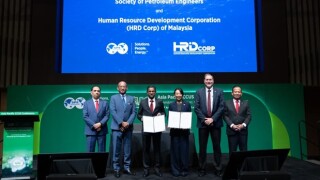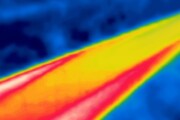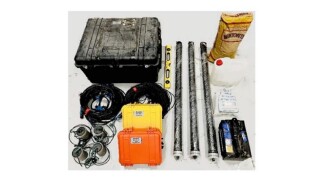
Explore by Topic
Stay Connected
Don't miss out on the latest technology delivered to your email every 2 weeks. Sign up for the DSDE newsletter.
Established in 1995, SPE Asia Pacific has grown to more than 25,000 members across 41 sections and more than 90 student chapters.
The Human Resource Development Corporation and Society of Petroleum Engineers Asia Pacific signed a memorandum of understanding to support the development of a future-ready energy workforce and strengthen Malaysia’s position as a regional hub for technical expertise and innovation.
Deploying artificial intelligence across an enterprise requires thinking beyond the pilot.
-
While new imaging capabilities are rejuvenating old data so explorers can discover hydrocarbons, finding and developing reserves is increasingly complicated.
-
The journal is the Society of Petroleum Engineers’ flagship peer-reviewed scholarly publication covering all aspects of petroleum engineering research.
-
The fifth edition of the SPE Europe Energy GeoHackathon, beginning on 1 October, focuses on how data science can advance geothermal energy and drive the energy transition.
-
This paper reviews the motivation and development of response-based forecasting from the perspective of the authors, reviewing examples and processes that have served as validation and led to modeling refinement.
-
This paper introduces a technology for offshore pipeline inspection centered on an autonomous robotic system equipped with underwater computer vision and edge-computing capabilities.
-
This study integrates physics-based constraints into machine-learning models, thereby improving their predictive accuracy and robustness.
-
With the right infrastructure and interoperability, subsea resident robotics could unlock more frequent, cost-effective inspections—and a new standard for offshore efficiency.
-
The paper describes the deployment of fiber-optic monitoring of CO₂ injection and containment in a carbonate saline aquifer onshore Abu Dhabi.
-
This paper presents a novel workflow with multiobjective optimization techniques to assess the integration of pressure-management methodologies for permanent geological carbon dioxide storage in saline aquifers.
-
This paper presents the development of a robust, physics-based, and data-driven workflow for modeling mud loss in fractured formations and predicting terminal mud loss volume and time, as well as equivalent hydraulic fracture aperture.
-
This study aims to use machine-learning techniques to predict well logs by analyzing mud-log and logging-while-drilling data.
-
This paper presents a physics-informed machine learning method that enhances the accuracy of pressure transient analysis, predicting reservoir properties to enhance waste slurry injection and waste disposal.
-
This study assesses the advantages, constraints, and necessary enhancements of both passive and active electromagnetic techniques in the context of carbon capture and storage.
-
This paper details the formulation and characterization of a novel nanoparticle system composed of polyethyleneimine and dextran sulfate for direct lithium extraction from bulk oilfield brines in North America.



























